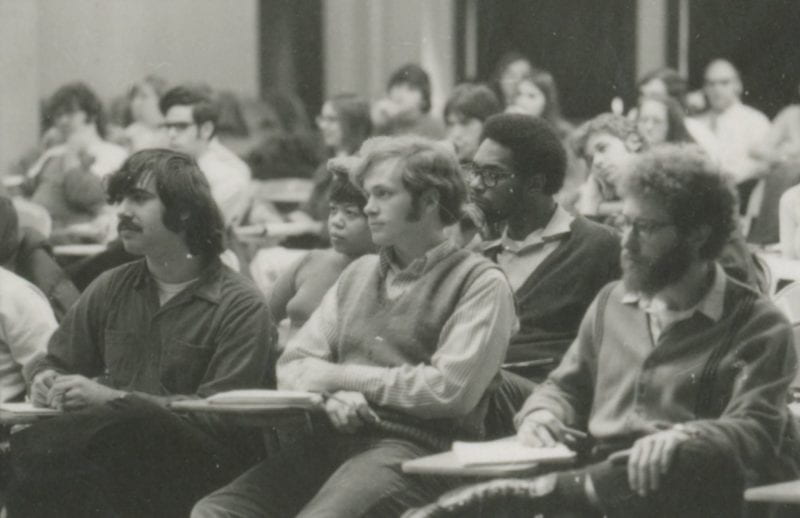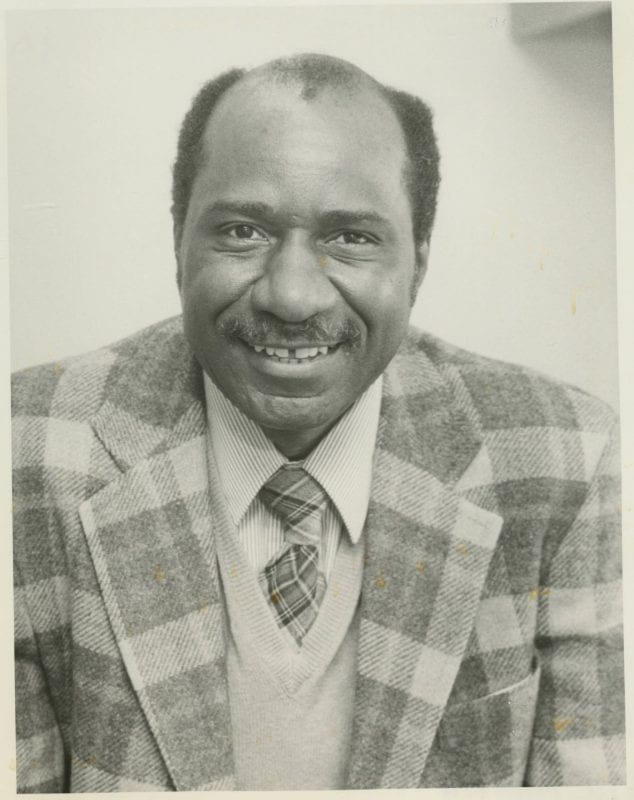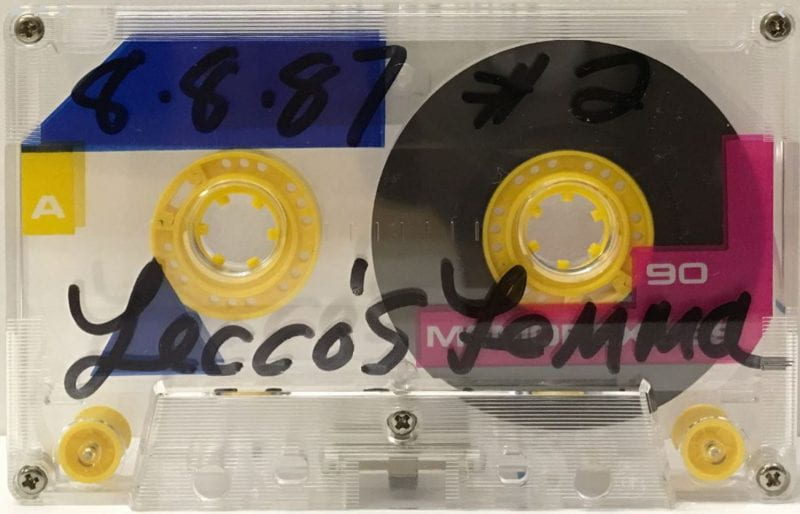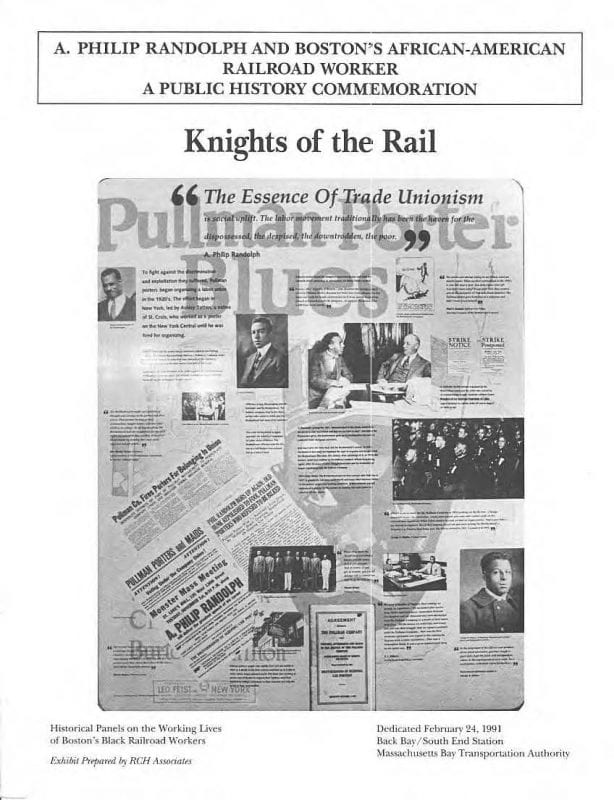Author: Maci Mark, Archives Assistant and graduate student in the Public History MA Program at UMass Boston
The Boston Teachers Union (BTU) has an essential place in Boston’s history. It was formed in 1945 and today has over 10,000 members. With this long history comes a lot to explore, especially when considering that the BTU had an important role in school desegregation and fought against affirmative action after the firing of 710 teachers. The BTU does not shy away from its history, both positive and negative. UMass Boston graduate students getting their Masters in Public History explored this legacy with Professor Nick Juravich in his spring 2022 course HIST 682: Digital Public History.

Over the course of the semester this class (this author being a member of it) met with numerous digital public historians from across the country, studied the ethics and best practices of digital public history projects, and met with BTU members to gain insight about what these members wanted to learn more about. Students then jumped into creating digital exhibits using the recently donated materials in the Boston Teachers Union collection to look at various aspects of the BTU’s history. Digital exhibits range from looking at the year 1981, Kathy Kelley vs. Kevin White, the changes in the BTU contract, and more. My own exhibit looking at solidarity within the BTU also draws from other archival collections from UMass Boston like the Tess Ewing collection and its run of Hazard Lights, the school bus drivers union (USWA Local 8744) newsletter.
The Boston Teachers Union collection is made up of three parts: digitized copies of The Boston Union Teacher from its 1963 through 2010 run, an oral history project run by Professor Juravich and retired BTU Secretary-Treasurer Betsy Drinan, and items collected from the Boston Teachers Union Digitizing Day in 2018 which kicked off the beginning of this relationship and hinted at what was to come. This collection also contains a complete run of the BTU contracts which have not yet been digitized.
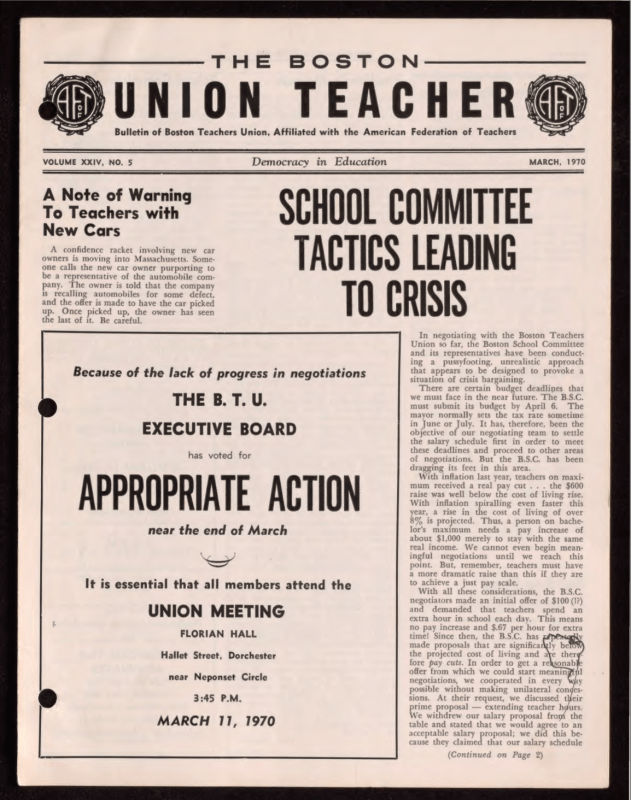
This collection was launched on May 3, 2022. Students from HIST 682, leadership from the BTU, many active and retired BTU members, and families gathered to have a celebration of this monumental collection. This celebration included speeches from the BTU leadership, Professor Juravich, and Betsy Drinan commemorating the work that went into this project and the significance of interrogating one’s own legacy, including the good and the bad. Students presented their exhibits, discussing their inspiration and personal connections. This also allowed students a chance to meet the people we had been writing about, as many people who had been interviewed in the oral histories attended the launch event, and former president of the BTU Richard Stutman paid a virtual visit as well.
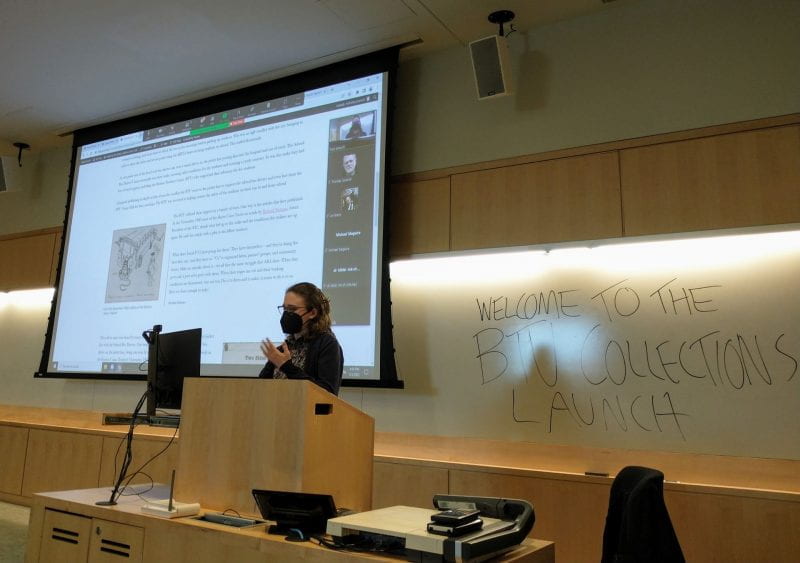
Overall as a student it was an incredible experience to get to be one of the first people to have hands-on experience working with these materials and to do so alongside the BTU. The type of partnership that is created here is a unique one that will hopefully benefit many students and the BTU down the line.
Explore the Boston Teachers Union digital collection. Contact library.archives@umb.edu for research assistance.



